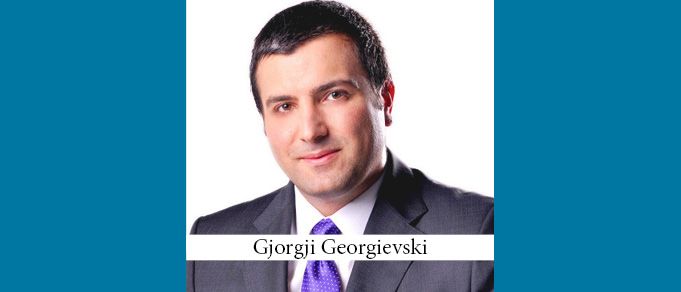“The focus in the country at the moment is on the constitutional amendments to change the name of the Republic of Macedonia,” says ODI Partner Gjorgji Georgievski.
In June 2017, Greece and Macedonia signed a bilateral treaty to resolve the long controversy over the country’s right to identify itself as the Republic of Macedonia. Based on the treaty, Macedonia undertook the obligation to change its name in the country’s constitution to "North Macedonia,” to placate Greek concerns about the potential of confusion with that country's northern region, which has the same name. Currently, Georgievski says, the entire legal community in what may soon be called North Macedonia — lawyers, scholars, and academics – is paying close attention to discussions in the country’s parliament about the proposed amendments to the constitution, which are expected to be incorporated by the end of the year. “Everybody is following the situation and hopes that it will not escalate,” he says, pointing out that the ruling party needs the votes of the opposition in the Parliament to pass the amendments. In the meantime, citizens are rallying and protesting against the proposed amendments. “It is very difficult to estimate how this will end up,” he says. “Everyone is expecting that the amendments will be adopted, but if there is a deadlock in this respect, Macedonia will enter another political crisis and it is impossible to tell which direction we will move.”
What’s at stake? Georgievski explains that the government’s willingness to change the country’s constitutional name is part of a deal which would result in the speedy accession of Macedonia to NATO and later in the EU. “Everybody believes that the accession to NATO will send a strong signal to investors and the international community that Macedonia is a stable country.” In addition, he says, the expectation is that the accession to NATO will lead to an influx of foreign investment in the country, not coincidentally generating more work for lawyers than in the past. In fact, Georgievski reports an observable increase of M&A and foreign investment activities already. “Lawyers are happy that the market is active now and everybody is just hoping that the trend will continue.”
Indeed, Georgievski believes that a recent increase in the activity of regional law firms such as Schoenherr and CMS in Macedonia — or North Macedonia? — in recent months is tied to the current changes and expected developments in the country. “I was surprised that they decided to set their local offices here, having in mind the relatively small size of the market,” he says, noting that such firms traditionally covered the market from the distance in the form of a desk or offices in neighboring countries. “At the same time, Macedonia is a difficult market. It is cumbersome to cover it from abroad, so I think they felt they needed to have somebody on the ground.” He believes that having regional firms enter the market will put additional pressure on local law firms by increasing competition for clients and talent. “Whether these law firms will be successful or not remains to be seen, yet their presence is something that cannot be neglected.”
Otherwise, Georgievski says, “there are no radical changes — everything is more or less the same.”

















